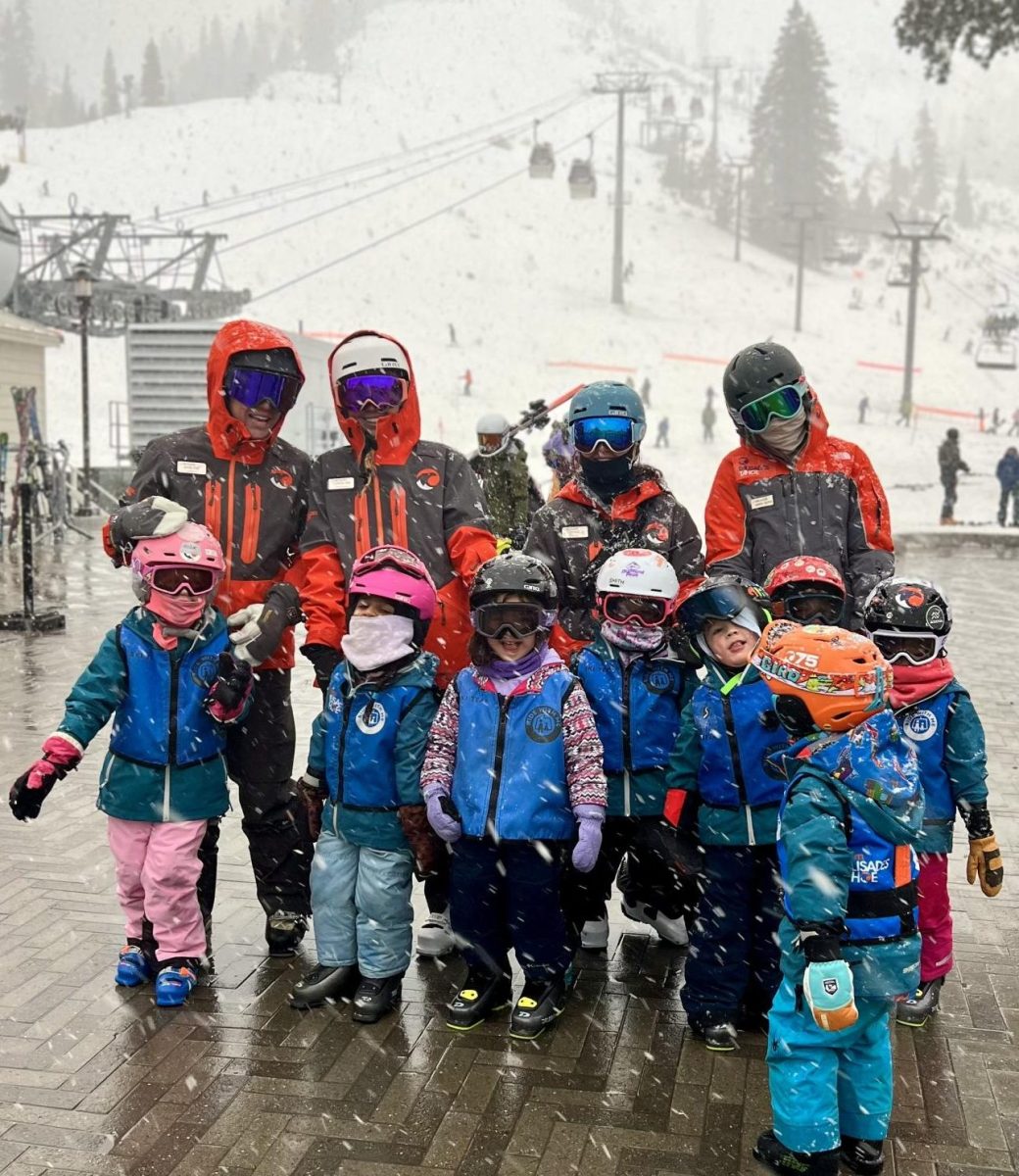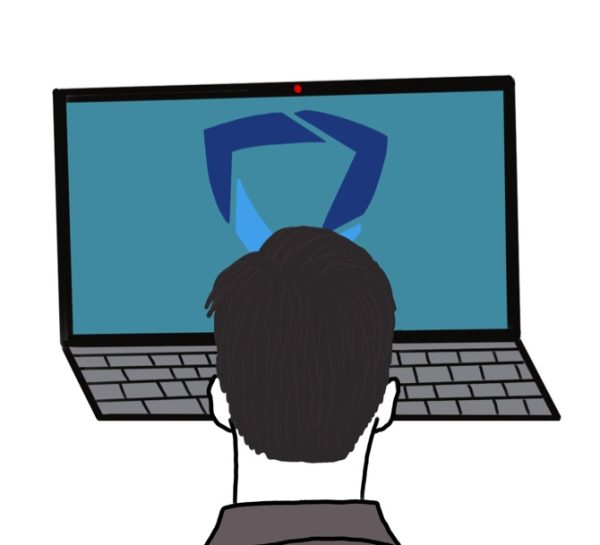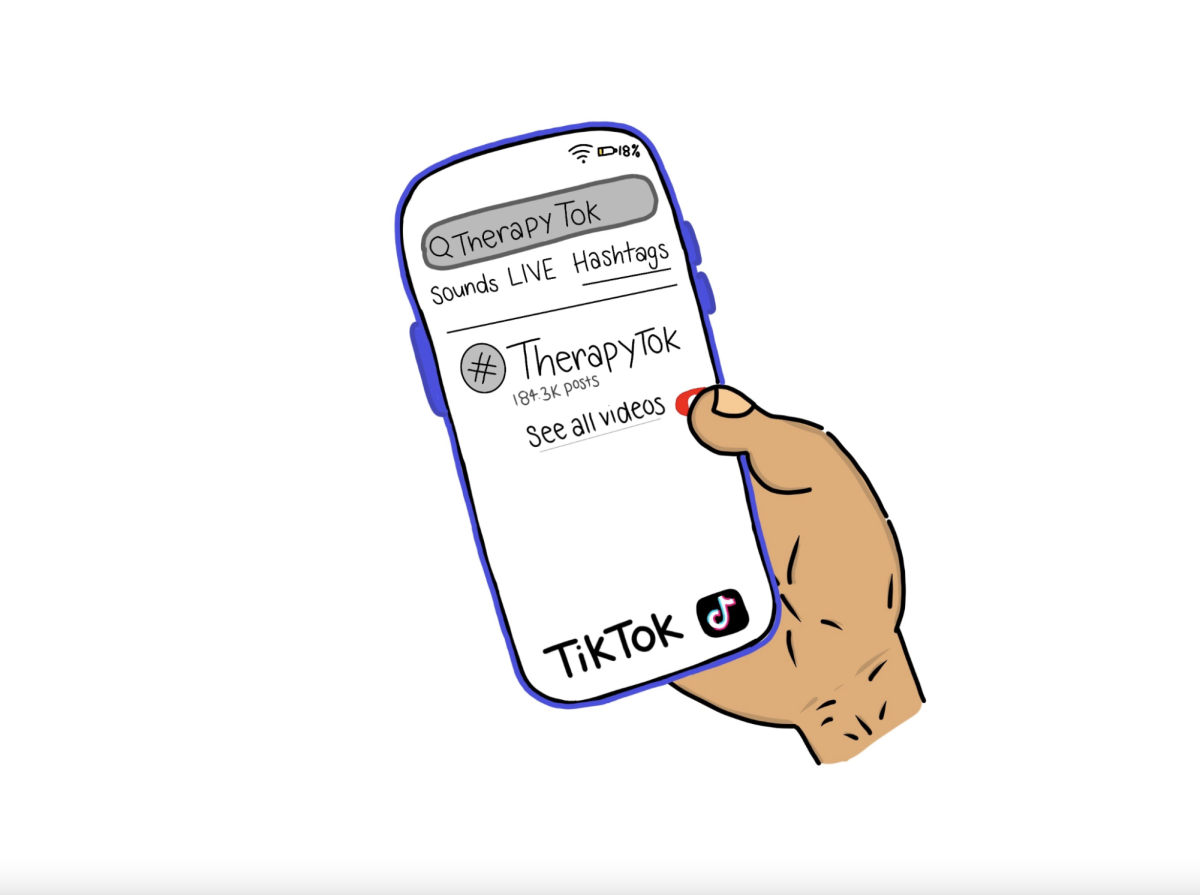If only you knew the answer and did not forget everything you learned about this unit. If only you could ask someone for help, or glance at someone else’s test when stumped. But you do not because the teacher is right in front of you, making sure you keep your academic integrity. However, with the global pandemic of COVID-19 forcing Redwood classes to suddenly go online, cheating is now much easier.
Cheating at Redwood is in part due to Redwood’s inherently competitive academic atmosphere according to sophomore “George,” who has requested anonymity. He has experienced Redwood’s competitive environment, especially in his Advanced Placement (AP) classes.
“Everyone is supposed to be a great student [at Redwood], but in reality, everyone’s trying to get the best grade they can, in any way they can do it,” George said.

Teachers can use technology such as Turnitin, a website that recognizes plagiarism, to regulate cheating.
Now that all work and tests are moving online for the rest of the year, students can easily work together on a test or copy one another’s work. It is extremely difficult for teachers to regulate cheating in these circumstances because they are not with students during the time of the test or essay. In light of this, English and AP Seminar teacher John Blaber uses technology in order to prevent direct cheating.
“On the one hand, you could make the argument that because more and more work is done online, it is certainly easier and more tempting for students to copy and paste other people’s work. On the other hand, it’s also true that [teachers can use] tools like Turnitin,” Blaber said.
Turnitin is a tool that teachers can use in order to identify plagiarism within students’ work. It compares the writing style and format of the submitted work to all other written pieces in their database. It can catch a piece of copied work by a peer or phrase that was plagiarized from an online source. While this is an effective way to prevent cheating, it is not practical for a large multiple-choice test or a math test.
Taber Watson, a history teacher who taught at Redwood for three years and now teaches at Drake High School, has run into several problems with the online school system.
“The whole Google Classroom thing has been an enlightening nightmare. Kids are now Snapchatting the whole test out to people,” Watson said.
Evidently, now that school has been moved online, modes of cheating have shifted. With homework or classwork, students are able to change a few words and copy and paste the rest. According to Watson, this has been problematic because it is impossible for teachers to thoroughly go through each student’s work to catch cheating.
Furthermore, cheating creates a problem where certain people are given answers while others are not. This causes an immense number of students who worked hard to receive a similar score as someone who merely copied their peers’ work.
“That’s the thing that really drives me nuts: that there’s a lot of really good kids with really good morals who weren’t on that Snapchat group that had to grind and study for my test,” Watson said.
This sentiment is shared by George through his academic experiences during his high school career.
“It’s just awful for [the people getting cheated off of]. They work really hard for themselves, and I didn’t study at all, but I cheat off them and get the same or better grade,” George said.

According to a survey conducted in 2015 by the International Center for Academic Integrity, approximately 64 percent of high school students nationwide have cheated during a test, and 95 percent of students use some form of cheating at one point. In order to prevent cheating, the cause of cheating has to be addressed and prevented, according to Watson.
“I think about cheating the same way I think about the drug trade. Every time we catch the new way they’re getting drugs across the border, they’re already making another. They get across the border because we’re not actually addressing the underlying addiction issue with drugs. We’re just trying to stop the drugs from coming,” Watson said. “Cheating’s the same way. So we need to address the underlying reasons kids cheat in order to stop it.”
Although the drug trade is a different issue than cheating, the analogy still demonstrates how teachers should focus less on catching cheating, and instead put an end to the student’s motivations to cheat. Additionally, some students use cheating for reassurance on a test; students may know the material but look to others to confirm their answers.
“A reason I cheat is for confirmation. Mostly on multiple-choice tests, I will look over to my partner’s scantron to make sure we have the same pattern for answers. It is just insurance to make sure I don’t make a dumb mistake,” George said.
Another problem with cheating is the impact on students’ futures. Blaber believes that when students cheat in high school, it leads them to develop the “imposter syndrome” later on. Imposter syndrome is a phenomenon where individuals downplay their achievements and believe their peers are better than they are.

64 percent of high school students have cheated off of their peers during a test.
“I think a lot of kids get into universities and they’re excited, but then when they walk onto campus and they’re aware that they’re surrounded by a whole lot of really ambitious and hardworking people. You can start to feel like ‘do I really belong here?’ ‘Did I get in here by luck or was this a mistake?’” Blaber said.
In order to temporarily prevent cheating during this online schooling, according to the College Board’s methods, teachers should limit the amount of time students can spend on an assignment or test, require written responses and prevent access to online resources during testing.
For the AP tests, College Board is taking several precautions to prevent cheating that Redwood could institute as well. First of all, there will be a set time that students are able to take the test. College Board is also using plagiarism detection tools. Redwood teachers could potentially use either the College Board’s technology or use Turnitin to prevent plagiarism. Furthermore, to prevent Googling, College Board is locking the screens of students’ computers and making the pace of the test faster. Lastly, the College Board is moving the majority of the test toward free-response questions and open notes to truly test the knowledge of students.
While cheating is likely to occur in any stressful environment, the College Board is mitigating this threat in order to reflect students’ true understanding of topics. Redwood teachers have the ability to take similar measures if they choose, and many already have. In these unprecedented times, according to George academic integrity is necessary and both teachers and students must work together to combat cheating.













